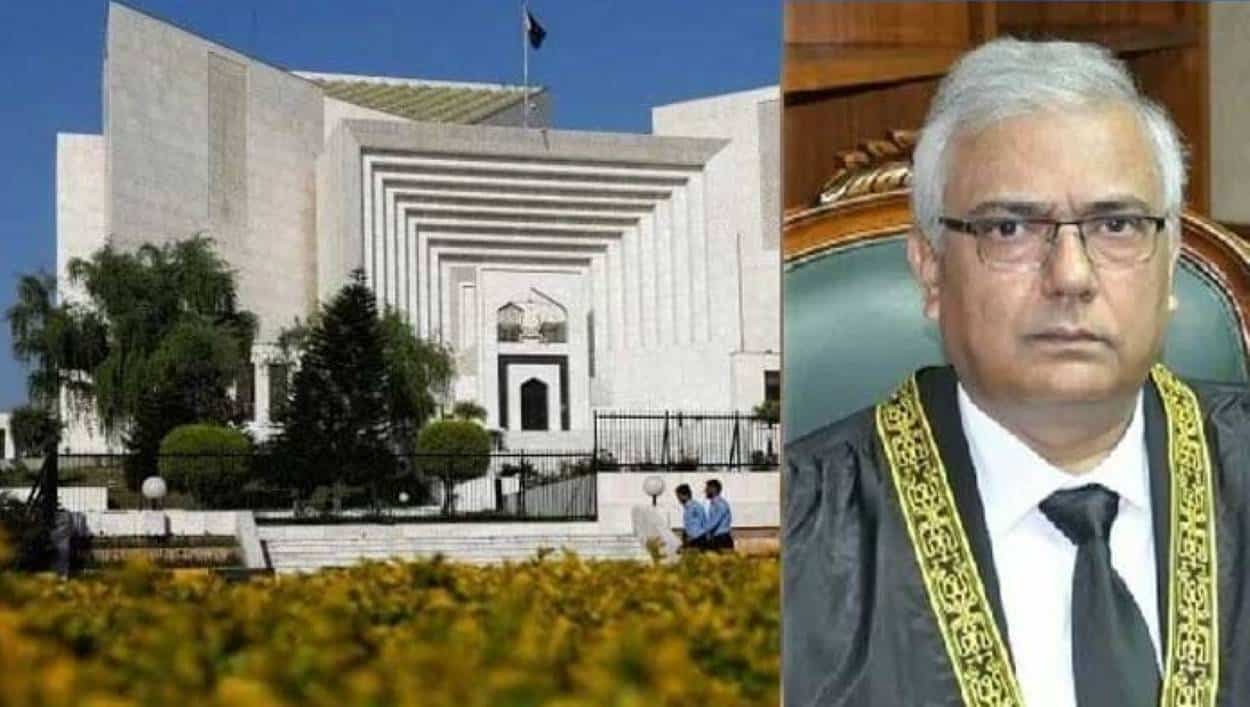An eight-judge Constitutional Bench (CB) of Pakistan’s Supreme Court resumed hearing petitions challenging the 26th Amendment. Passed in October 2024, the amendment curbs judicial powers, sparking debate over autonomy. It removes the Supreme Court’s suo motu powers. It also sets a three-year term for the Chief Justice of Pakistan (CJP) and allows the prime minister to appoint the CJP from the three senior-most judges.
Led by Justice Aminuddin Khan, the bench includes Justices Jamal Khan Mandokhail, Muhammad Ali Mazhar, Ayesha Malik, Syed Hasan Azhar Rizvi, Musarrat Hilali, Naeem Akhtar Afghan, and Shahid Bilal Hassan. Petitions from PTI, high court bar associations, and others demand the amendment’s annulment.
Petitioners argue the amendment violates Article 239, claiming procedural flaws in its passage. They allege the required two-thirds parliamentary vote lacked free consent. Alternatively, they seek to strike down provisions such as judicial performance evaluations (Article 175A(1), 18-20) and the rules governing the appointment of the CJP (Article 175A(3)). They cite threats to judicial independence—a core constitutional principle.
Read: Supreme Court Issues Ruling on Presidential Powers for Transfer of Judges
They also challenge the formation of constitutional benches and the Supreme Court (Practice and Procedure) Act 2024, calling them unconstitutional. Additionally, petitioners demand the reinstatement of the original CJP appointment process and a full court hearing instead of the CB.
The call for a full court persists. On January 27, 2025, Justice Ayesha Malik supported it, citing precedents like the 18th and 21st Amendment challenges. However, Justice Mazhar clarified, “The CB cannot refer this to the full court under Article 191A.” CJP Yahya Afridi, in his August responses, rejected a full court. He cited risks to collegiality and the potential for public criticism.
Justices Mansoor Ali Shah and Munib Akhtar, in an August 20 letter, lamented a “lost opportunity” for a full court hearing. This followed their decision on October 31, 2024, by the committee. The CB has issued notices on full court referral and live streaming.
The fate of the 26th Amendment could reshape Pakistan’s judiciary. Its impact on independence and CJP appointments fuels political and legal tensions. A ruling may set precedents for constitutional amendments.






